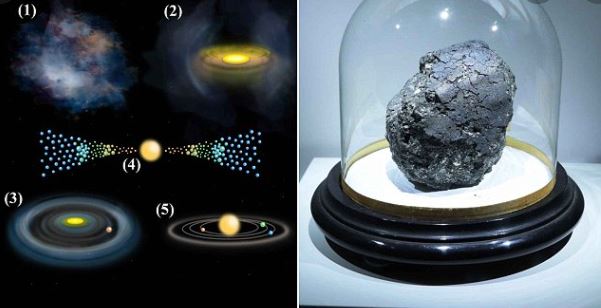A meteorite that might have lit up the night sky in the US Midwest in 2018 contains PRISTINE organic compounds that may offer clues to how life was brought to Earth. It was observed by motorists and others in several states after producing a fireball and loud explosion on January 18, 2018. Thanks to some smart thinking and quick action, the rocks were quickly in the hands of researchers before they could be contaminated.
In less than two days after it streaked across the sky, meteorite hunter Robert Ward found the first piece resting on the frozen surface of Strawberry Lake near Hamburg, Michigan. He was able to point out the destination by using NASA’s weather radar, as the meteorite chunks were similar in size to hail. He quickly got it to the Field Museum in Chicago, where curator Philipp Heck quickly set about studying it.

“This meteorite is special because it fell onto a frozen lake and was recovered quickly. It was very pristine. We could see the minerals weren’t much altered and later found that it contained a rich inventory of extraterrestrial organic compounds,” Heck said in a statement. “These kinds of organic compounds were likely delivered to the early Earth by meteorites and might have contributed to the ingredients of life.”
Many scientists were able to probe the rock using different means, “so we have an unusually comprehensive set of data for a single meteorite,” said Heck.
While the meteorite was as clean as one that lands on Earth can be, scientists are especially eager to get their hands on a truly pristine specimen from the source – space. That’s scheduled to happen in 2023.
TECH NEWS>>>>How to Uninstall Apps and Games on Google Tv




